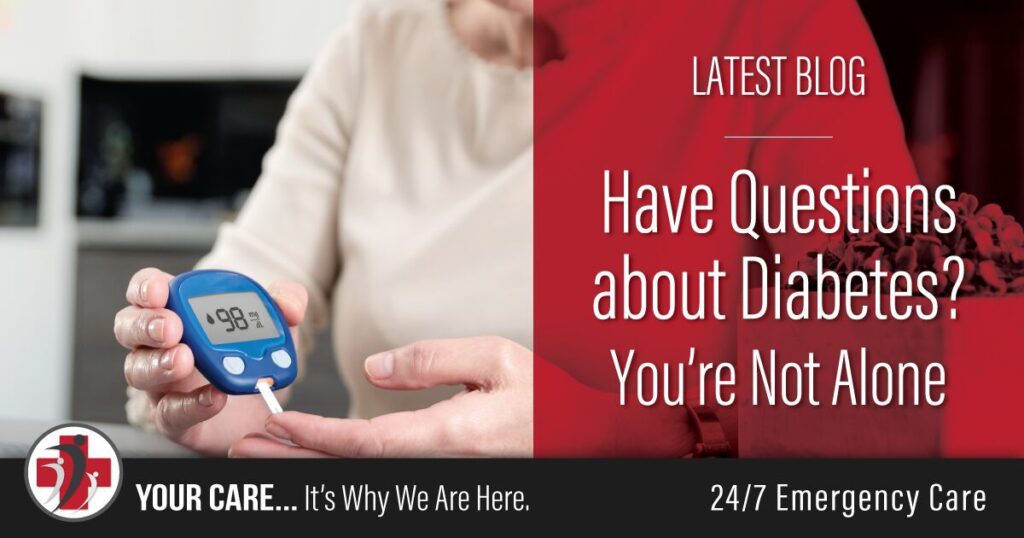On the heels of Halloween, and just before the REAL seasonal indulgence starts, we thought we’d bring to light a disease that affects over 11% of the U.S. population – diabetes. From the questions we hear from our patients, we know that there is plenty of confusion (and misinformation!) out there about this serious medical condition. And in honor of American Diabetes Month, we think this is the perfect time to clear up some questions you might have about this complicated disease. We thought we’d list a few of the most commonly-asked questions we get, as well as the answers. We hope it’s helpful for you!
Q: Can I get diabetes from eating too much sugar?
A: No. . . . and maybe. The simple answer is that type 2 diabetes is more likely to occur if you are overweight – a condition often brought on by an excess of sugary foods. Also, it’s important to note that if you eat an excess of high-sugar foods on a regular basis, you could develop insulin resistance, which is a symptom of prediabetes.
Q: What’s the difference between type 1 and type 2?
A: Let’s start with what’s the same with both types. In both type 1 and type 2 diabetes, the pancreas’ ability to make insulin is compromised. And both types are marked by the individual’s blood glucose level.
Type 1 diabetes is a chronic auto-immune disorder that causes destruction to the beta cells, or insulin-producing cells, causing the pancreas to stop producing insulin completely. Type 1 requires daily maintenance and care for the duration of the individual’s life, and is not preventable.
Type 2, on the other hand, is largely preventable. Some contributing factors include being overweight, not being physically active, having an immediate family member with type 2, and having a diagnosis of prediabetes. Type 2 diabetes can be managed with diet and exercise.
Q: What are the symptoms of diabetes?
A: Some symptoms include being very thirsty and having to urinate often (this is thanks to your body needing to produce more urine to help pass the glucose out of your body), losing weight despite being very hungry and eating more than usual, fatigue, blurred vision, and your feet feeling tingly.
Q: So how do I know for sure if I have diabetes?
A: If you’re exhibiting symptoms and you’re worried you might have this disease, it’s important to visit our Fountain Hills medical clinic or Fountain Hills urgent care center as soon as possible. Our medical staff will likely test your urine to get a blood sugar reading. You may also be asked to complete a fasting blood glucose test, a blood A1c test, or a glucose tolerance test.
Q: Can people with diabetes still eat sweets?
A: People living with type 1 and type 2 diabetes can enjoy a wide range of foods, including sweets. People with type 1 diabetes are required to count their carbohydrate intake and adjust their insulin dosage accordingly. People with type 2 diabetes may or may not dose with insulin when they eat, depending on their medication status and other factors.
There’s much more to diabetes than the broad overview provided by these questions and answers – as medical providers, even we are learning more about it all the time. And if you have more questions about type 1 or type 2 diabetes in Fountain Hills, let us help. We encourage you to schedule an appointment so we can talk about it, you can get your questions answered, and we can help you take the necessary action if you think you might be at risk.
Sources:
- www.uhhospitals.org
- uihc.org/health
- diabetes.ufl.edu
- www.cdc.gov

